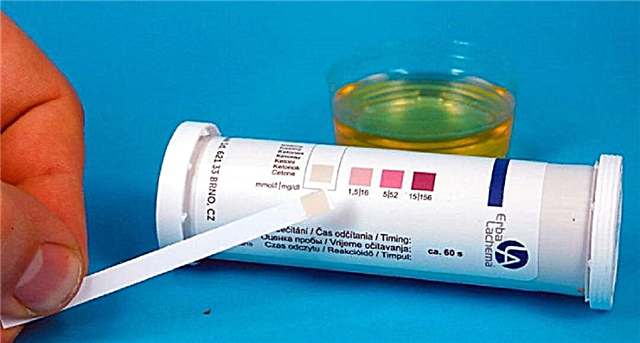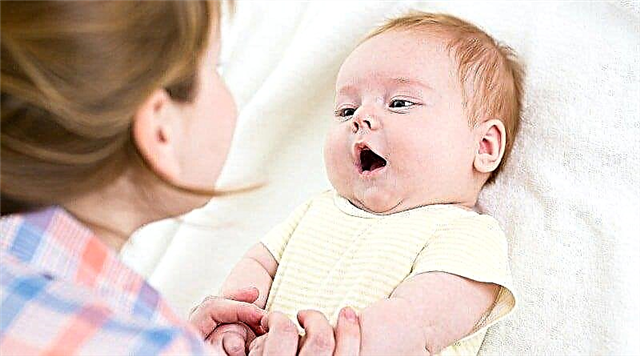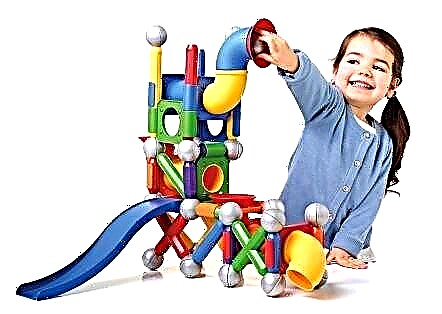From the first days of a child's life, adults worry about the state of his health. Minor manifestations of a runny nose turn into real trials for the baby's parents - you have to understand its causes and make decisions to eliminate it.

Parents and baby
What is a runny nose
Any doctor will say that a runny nose is not a disease, but only a symptom of some disease. Most colds in children and adults are a manifestation of ARVI. A nasal flow is a defense reaction of the body when a pathogen appears, with which it tries to get rid of the infection.
The mucous membranes of the nasopharynx are lined with special glands that secrete mucus. In a healthy person, they work normally, allowing the sinuses to humidify the air they breathe. In a sick person, mucus is produced by the glands in excess in order to kill the infection with the active substances contained in it, without letting it go down into the respiratory tract.
Attention! Before getting rid of a cold, you need to find out what kind of disease it is a symptom of.
Types of rhinitis in infants
Newborns have a formed nasal mucosa, which provides high-quality treatment of the air they breathe in order to ensure gas exchange in the lungs. Violation of nasal breathing is extremely dangerous for a child during the first 6 months of life. Without the ability to breathe through the nose, the baby will not be able to suckle the breast or the nipple on the bottle, which means that it can eat normally.

Runny nose in a baby
Due to the inability to breathe through the mouth, the child will suffocate, groan and snore at night. Therefore, it is extremely important to understand the causes of a cold, which can be:
- allergic reaction;
- viral infection;
- bacterial infection;
- irritation of the mucous membranes associated with teething of the upper jaw.
Interesting. Overdried indoor air can cause more active work of the glands of the nasal cavity.
Bathing a baby with a runny nose
In order to find out whether it is possible to bathe a child with a cold, it is important to determine the cause of the flow from the nose. Allergic rhinitis is not a contraindication to water treatments.
Nasal flow without fever
If the body temperature is not elevated, the question of whether it is possible to wash a child with snot should not worry parents. A runny nose itself without other symptoms of ARVI is most likely a manifestation of an allergy or just a developing infection. Contact with water in such a situation is not dangerous, in the case of allergic rhinitis it is even useful. Staying a child in a room with high humidity contributes to the rapid and successful flushing of dried mucus from the nose, the release of the nasal passages. However, you should be careful with diving - if there is swelling of the mucous membrane (stuffy nose), you should not dive, as this can lead to the development of otitis media.
Swimming with ARVI with high temperature
If the child's body temperature is elevated, you can take a bath, but only if the general condition is not disturbed. With weakness and chills, you should not bathe the child. The answer to the question "is it possible to wash a child with a cold with a temperature" is unambiguous: not only is it possible, but also necessary. Hygiene procedures are necessary to prevent additional problems associated with skin irritation under the diaper. They wash the child under a stream of warm water.

Hygiene boys
Due to the anatomical difference in the structure of the female and male genital organs and also, given that the stool in infants is predominantly liquid, it is enough for boys to wipe clean with wet wipes under a diaper. Girls must be washed in running water to prevent the development of genital infections.
Water temperature for a sick child
Asking the question “is it possible to bathe a baby with a cold”, it should be borne in mind that if a positive decision is made, you need to change the water parameters. It should be one to two degrees warmer than normal bathing. If the bathing temperature of a healthy baby has already been brought to 34-35 degrees, then it is worth heating the water for a sick child to 35-36 degrees.
Contraindications to water treatments with a cold
Parents, whose children from a young age are engaged in swimming with an instructor, think about whether it is possible to bathe in the pool of a baby with a cold without fever. Allergic rhinitis will be an unambiguous contraindication. This is due to the fact that almost all swimming pools use chlorine to disinfect water, which will become an additional irritant to the mucous membranes of the respiratory tract. First, you should visit an allergist who will give his opinion regarding the visit to the pool.
Important! If the family regularly visits the bathhouse, it is important to know that overheating is contraindicated for a child under three years old. In the organisms of children of this age, thermoregulation processes take place differently than in adults. Therefore, high ambient temperatures are dangerous for babies.
Komarovsky about the health of the child
The popular practicing pediatrician Komarovsky E.O. argues that the health of a child mainly depends on the lifestyle to which his parents have taught him. To strengthen immunity, hardening is not required, it is enough not to spoil the child's health laid down from birth:
- not be afraid to walk in any weather for at least three hours a day;
- do not isolate the skin of the foot with socks / shoes from the cool surfaces of the floor or summer grass in the yard;
- do not cover your ears with caps indoors, as well as outdoors, if the air temperature is above + 18˚C;
- observe the temperature regime of the house, actively airing the room, preventing stuffiness from appearing;
- feed children after a year only for appetite, without forcing them to finish eating;
- do not knock down the body temperature with manifestations of ARVI, if it does not exceed 38˚C;
- form immune protection through timely vaccination.

Walk under the rain
Attention! Nature has a complex immunity system in humans, which, with favorable external factors, can successfully fight most infections. Overprotective adult care spoils the child's ability to cope with pathogens.
What healing baths will benefit
As noted by medicine, sea water has medicinal properties in relation to various respiratory diseases, as well as some other diseases. That is why bathing in seawater can relieve swelling of mucous membranes, help remove mucus from the nasal passages. At home, you can simulate sea water, for this:
- in a full bath, dissolve two tablespoons of sea salt purchased from a pharmacy;
- leave the water temperature as usual for the child if he does not have a temperature, or increase it to 36˚C if the body temperature is elevated;
- after bathing in a bath with sea salt, wash the baby in fresh warm running water.
You can, while sitting in the bathroom, use a small syringe to rinse the nasal passages with salt water. Salt draws out moisture, that is, it helps to drain mucus from the maxillary sinuses.
Prevention of runny nose in infants
In order to avoid a runny nose, you need to avoid contact with viruses. In the modern world, this is impossible - a visit to any public place can end with ARVI. Mandatory visits to the clinic for preventive examinations increase the chances of infection. In order to reduce the risk of a runny nose, cough and other symptoms of infections, you need to:
- visit public places (shops, transport) as little as possible;
- during forced visits, carry drops with saline solution for instillation into the nose (while on the bus, for example, you need to drip abundantly salt water into your nose every 10-15 minutes);
- visit the clinic, if possible, with two adults: while the dad is in the queue for the doctor, the mom and the baby can walk outside the clinic in the fresh air without coming into contact with possible viruses.
Attention! In the apartment where the baby lives, it is better to have personal hygiene products and utensils (towels, mugs, pillows). This significantly reduces the risk of infection within the family.
One of the fundamental rules for bathing children and performing any other procedures is to a greater extent in the condition of the child. If the activity does not bring joy to the child, if he cries and in every possible way demonstrates hostility to immersion in water, even when swimming is allowed for health reasons, it is better to postpone the venture. On the contrary, when a child with a runny nose enjoys bathing in the bathroom, you should not deprive him of positive emotions and stay in a humid room - this is only for his benefit.



